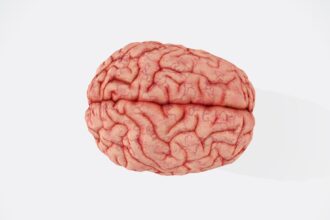Depersonalization and derealization are complex psychological phenomena that can leave you feeling detached from your own thoughts, feelings, or sense of self. When you experience depersonalization, it may feel as though you are observing yourself from outside your body, as if you are a spectator in your own life. This sensation can be disorienting and unsettling, often leading to confusion about your identity and reality.
On the other hand, derealization involves a sense of detachment from your surroundings, making the world around you seem unreal or distorted. You might find that familiar places appear strange or that people seem like mere objects rather than living beings. These experiences can occur in isolation or as part of a broader mental health condition, such as anxiety or depression.
Understanding these phenomena is crucial for recognizing their impact on your daily life. You may find yourself questioning your reality, which can lead to increased anxiety and stress. It’s important to remember that while these feelings can be distressing, they are not uncommon and can be addressed with the right support and strategies.
Key Takeaways
- Depersonalization is a feeling of being disconnected from oneself, while derealization is a sense of being detached from the world.
- Symptoms of depersonalization and derealization can include feeling like an outside observer of one’s thoughts or actions, or experiencing the world as unreal or distorted.
- Seeking professional help from a therapist or psychiatrist is crucial for managing depersonalization and derealization.
- Treatment options for depersonalization and derealization may include cognitive behavioral therapy, mindfulness and meditation, and medication.
- Building a support system and implementing lifestyle changes can also be effective in managing symptoms and finding hope for the future.
Recognizing the Symptoms
Recognizing the symptoms of depersonalization and derealization is the first step toward understanding what you are experiencing. You might notice that you feel disconnected from your emotions or that your thoughts seem to be happening to someone else. This can manifest as a sense of numbness or emotional flatness, where you struggle to connect with feelings that once felt vivid and real.
Additionally, you may experience a distorted perception of time, where moments feel elongated or compressed, leaving you feeling lost in the flow of time. Another common symptom is the sensation of being in a dreamlike state, where everything around you feels surreal or foggy. You might find it challenging to focus on conversations or tasks, as if you are watching life unfold from a distance.
These symptoms can vary in intensity and duration, sometimes appearing suddenly during stressful situations or prolonged periods of anxiety. By recognizing these signs, you can begin to articulate your experiences and seek the appropriate help.
Seeking Professional Help

If you find yourself grappling with depersonalization and derealization, seeking professional help is a vital step toward recovery. A mental health professional can provide you with a safe space to explore your feelings and experiences without judgment.
By discussing your experiences openly, you can gain insights into how these feelings affect your daily life and relationships. Therapy can be particularly beneficial in helping you develop coping strategies tailored to your unique situation. A therapist can guide you through various therapeutic approaches, allowing you to explore your thoughts and feelings in depth.
This process not only helps in alleviating symptoms but also empowers you to regain a sense of control over your life. Remember, reaching out for help is a sign of strength, and taking this step can lead to significant improvements in your overall well-being.
Exploring Treatment Options
| Treatment Option | Success Rate | Side Effects |
|---|---|---|
| Medication | 70% | Nausea, dizziness |
| Therapy | 60% | None |
| Surgery | 80% | Pain, infection |
When it comes to treating depersonalization and derealization, there is no one-size-fits-all approach. Treatment options can vary widely based on individual needs and circumstances. You may find that a combination of therapies works best for you.
For instance, some individuals benefit from psychotherapy, while others may find relief through medication or alternative therapies. Exploring these options with a mental health professional can help you identify what resonates with you. In addition to traditional therapies, some people explore holistic approaches such as art therapy or music therapy.
These creative outlets can provide a means of expression that transcends words, allowing you to process emotions in a different way. Engaging in activities that promote relaxation and self-discovery can also be beneficial. The key is to remain open-minded and willing to try different methods until you find what works best for you.
Cognitive Behavioral Therapy
Cognitive Behavioral Therapy (CBT) is one of the most widely used therapeutic approaches for addressing depersonalization and derealization. This form of therapy focuses on identifying and challenging negative thought patterns that contribute to your feelings of detachment. Through CBT, you will learn to recognize how your thoughts influence your emotions and behaviors, enabling you to reframe negative beliefs about yourself and your experiences.
In CBT sessions, you may engage in exercises that help ground you in the present moment. These techniques can include mindfulness practices or journaling about your experiences. By actively participating in your healing process, you can develop a greater sense of agency over your thoughts and feelings.
Over time, CBT can help reduce the frequency and intensity of depersonalization and derealization episodes, allowing you to reconnect with yourself and the world around you.
Mindfulness and Meditation

Mindfulness and meditation practices can serve as powerful tools for managing symptoms of depersonalization and derealization. By cultivating awareness of the present moment, you can create a sense of grounding that counters feelings of detachment. Mindfulness encourages you to observe your thoughts and feelings without judgment, allowing you to acknowledge them without becoming overwhelmed.
Incorporating meditation into your daily routine can also enhance your ability to cope with stress and anxiety. Simple techniques such as deep breathing exercises or guided imagery can help center your mind and body. As you practice mindfulness regularly, you may find that it becomes easier to stay connected to your emotions and surroundings, reducing the likelihood of experiencing episodes of depersonalization or derealization.
Medication for Depersonalization and Derealization
In some cases, medication may be recommended as part of a comprehensive treatment plan for depersonalization and derealization. While there is no specific medication approved solely for these conditions, certain antidepressants or anti-anxiety medications may help alleviate symptoms associated with underlying mental health issues. It’s essential to work closely with a psychiatrist or healthcare provider who understands your unique situation.
Medication can be particularly beneficial if your symptoms are severe or significantly impairing your daily functioning. However, it’s important to remember that medication is often most effective when combined with therapy and lifestyle changes. Regular follow-ups with your healthcare provider will ensure that any medication prescribed is monitored for effectiveness and adjusted as needed.
Lifestyle Changes for Managing Symptoms
Making lifestyle changes can play a crucial role in managing symptoms of depersonalization and derealization. You might consider incorporating regular physical activity into your routine, as exercise has been shown to reduce anxiety and improve mood. Engaging in activities that bring you joy—whether it’s spending time outdoors, pursuing hobbies, or connecting with loved ones—can also foster a sense of connection to yourself and the world around you.
Additionally, prioritizing sleep hygiene is essential for mental well-being. Poor sleep can exacerbate feelings of detachment, so establishing a consistent sleep schedule and creating a calming bedtime routine can help improve the quality of your rest. Nutrition also plays a role; maintaining a balanced diet rich in nutrients can support overall mental health.
By making these lifestyle adjustments, you create a foundation for resilience against symptoms.
Building a Support System
Building a support system is vital when navigating the challenges of depersonalization and derealization. Surrounding yourself with understanding friends and family members who are willing to listen can provide comfort during difficult times. Sharing your experiences with trusted individuals allows them to better understand what you’re going through and offer their support when needed.
You might also consider joining support groups where individuals share similar experiences. Connecting with others who understand what you’re facing can foster a sense of belonging and reduce feelings of isolation. Whether online or in-person, these groups provide an opportunity for shared learning and encouragement as you work toward healing together.
Coping Strategies for Daily Life
Developing coping strategies for daily life is essential for managing symptoms effectively. You may find it helpful to create a toolkit of techniques that resonate with you personally. For instance, grounding exercises—such as focusing on physical sensations or engaging in sensory activities—can help anchor you when feelings of detachment arise.
Establishing routines can also provide structure in your day-to-day life, making it easier to navigate moments of uncertainty. Incorporating breaks throughout the day for self-care activities—such as reading, taking walks, or practicing relaxation techniques—can help mitigate stress levels. By proactively implementing these strategies into your life, you empower yourself to cope more effectively with challenges as they arise.
Finding Hope and Moving Forward
Finding hope amidst the challenges of depersonalization and derealization is possible with patience and perseverance. It’s important to remind yourself that recovery is not linear; there will be ups and downs along the way. Embracing small victories—whether it’s successfully managing an episode or feeling more connected to yourself—can foster a sense of progress.
As you continue on this journey toward healing, remember that seeking help is an act of courage. With the right support system in place and effective coping strategies at your disposal, you have the tools necessary to navigate these experiences successfully. By focusing on self-compassion and resilience, you can move forward with hope for a brighter future where depersonalization and derealization no longer define your reality.
In recent years, there has been growing interest in understanding and treating depersonalization and derealization disorders, which can significantly impact an individual’s quality of life. A related article on this topic can be found on Unplugged Psychology’s website, which delves into various therapeutic approaches and coping strategies for these conditions.
For more detailed insights, you can read the full article by visiting Unplugged Psychology.
LEARN MORE About Unmasking the Mysteries Behind Depersonalization and Derealization
FAQs
What is depersonalization and derealization?
Depersonalization is a mental health condition where a person feels detached from themselves, as if they are observing themselves from outside their body. Derealization is a similar condition where a person feels detached from their surroundings, as if the world around them is unreal.
What are the symptoms of depersonalization and derealization?
Symptoms of depersonalization and derealization may include feeling disconnected from one’s body or emotions, feeling like a robot or an observer of one’s own life, feeling like the world is foggy or dreamlike, and experiencing a distorted sense of time.
Is there a cure for depersonalization and derealization?
There is no specific cure for depersonalization and derealization, but treatment options such as therapy, medication, and lifestyle changes can help manage the symptoms and improve quality of life for individuals with these conditions.
What are some treatment options for depersonalization and derealization?
Treatment options for depersonalization and derealization may include cognitive behavioral therapy (CBT), medication such as antidepressants or anti-anxiety drugs, stress management techniques, and lifestyle changes such as regular exercise and healthy sleep habits.
Can depersonalization and derealization be managed effectively?
With the right treatment and support, many individuals with depersonalization and derealization can learn to manage their symptoms effectively and lead fulfilling lives. It may take time and patience to find the right combination of treatments that work for each individual.




